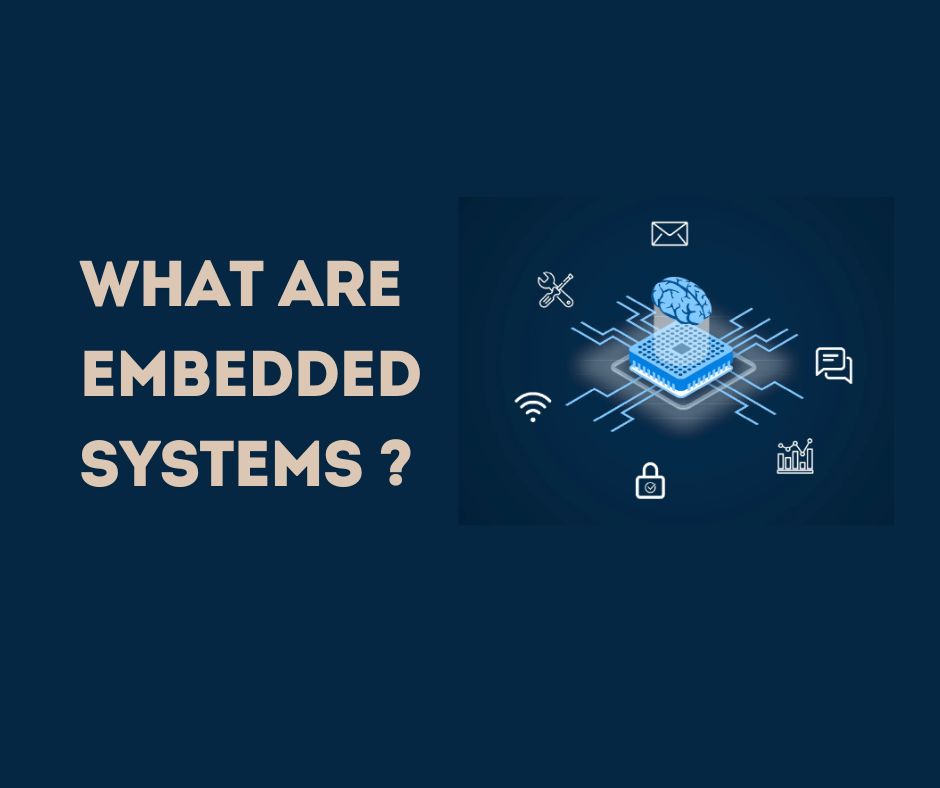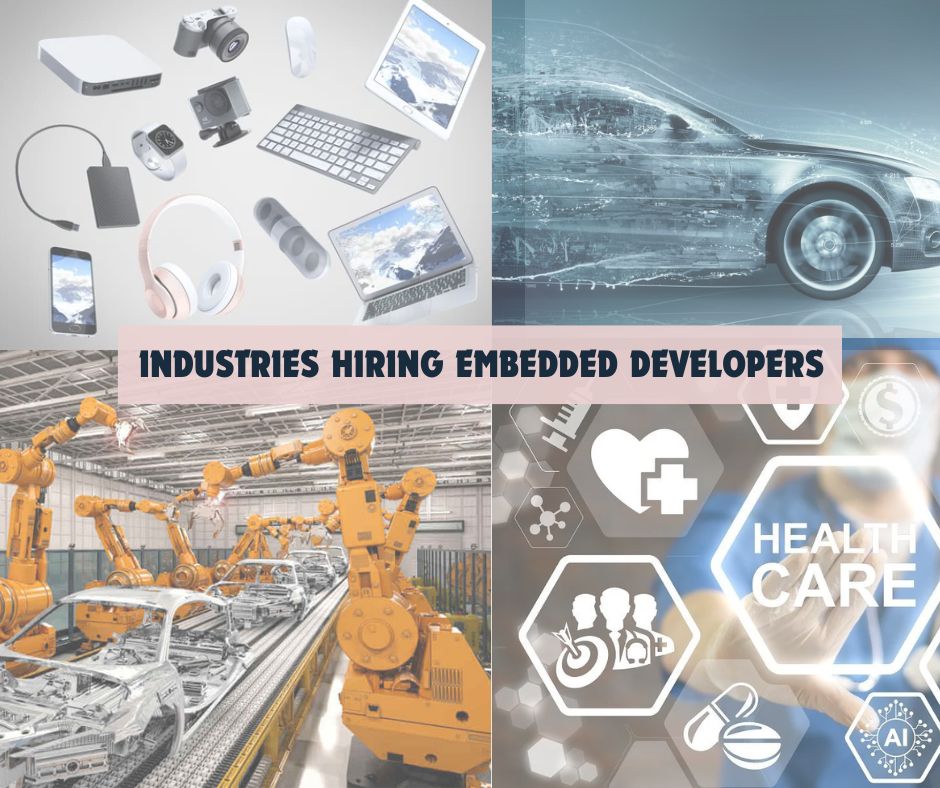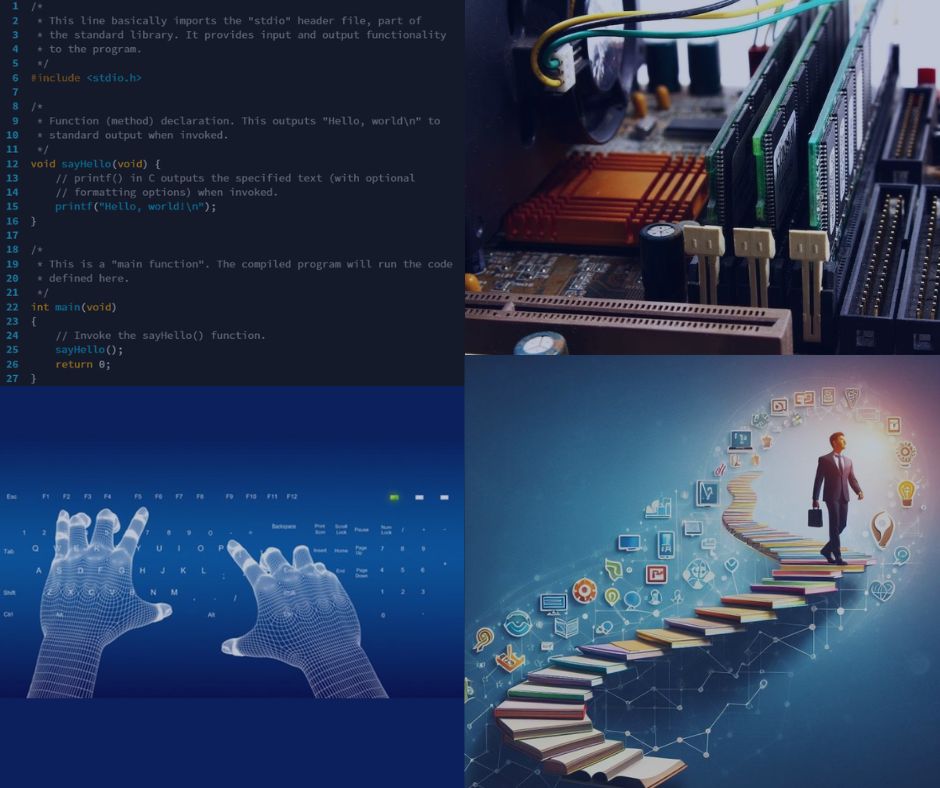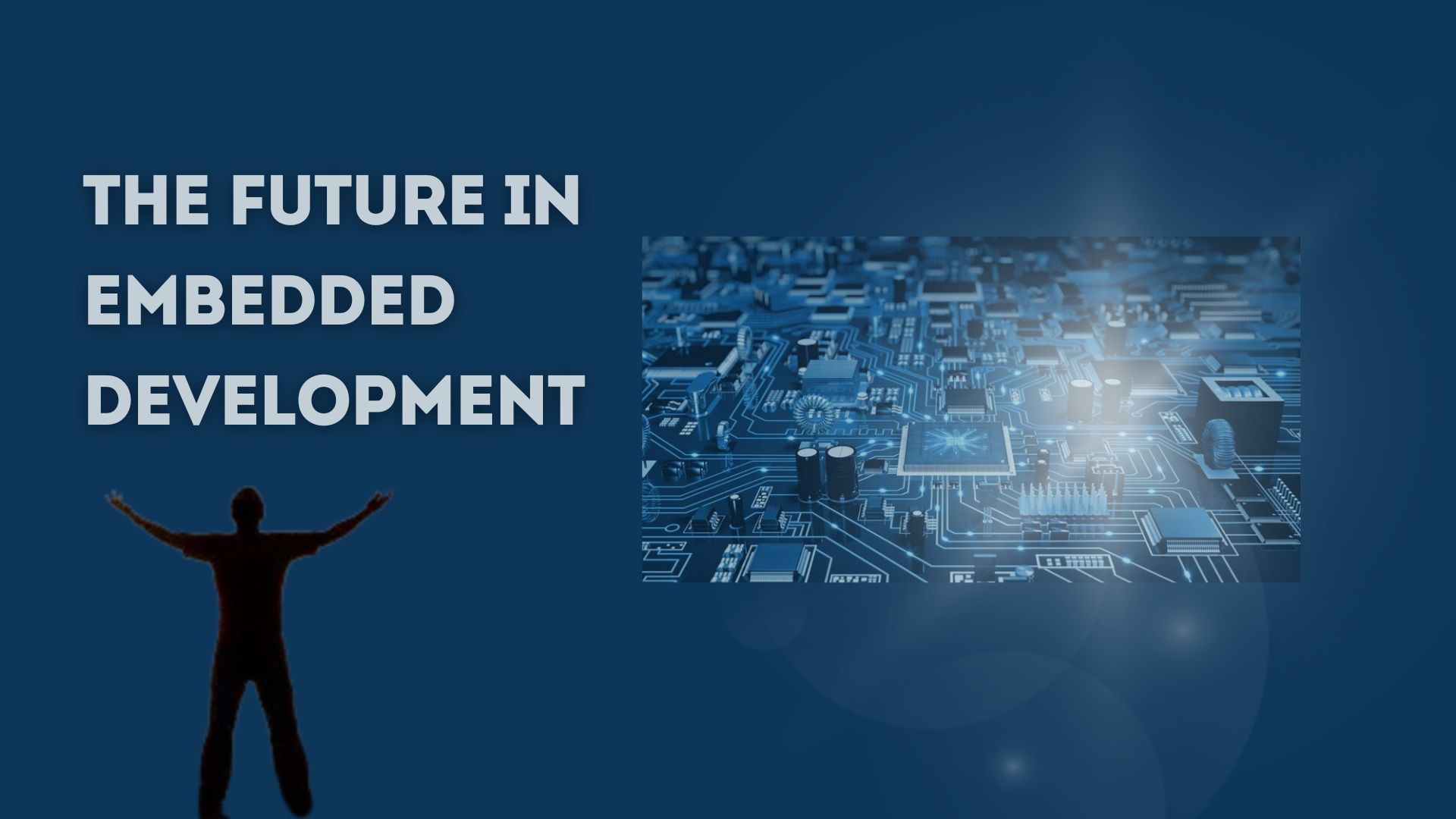We all talk about web development and app development all the time. But for BCA and MCA students, a career in embedded development is another option that holds a lot of potential. The future of embedded systems is bright.
Embedded development is about designing software that makes our devices smarter and more intelligent. In the tech-driven world today, embedded development is in demand as we need the software to control devices and systems. It requires low-level programming and hardware integration.
So, if you are more interested in creating smart gadgets than building websites, a career in embedded development might be your perfect fit. Let’s dig deeper into this career path.
Understanding Embedded Systems and Embedded Development

Embedded systems are specialised computing systems that perform dedicated functions within larger mechanical or electrical systems. Unlike general-purpose computers, these systems are designed to carry out specific tasks efficiently.
Some examples of embedded systems we come across in our daily lives are:
- Engine control units (ECUs) in the automotive industry to manage fuel injection, ABS brakes, and airbag systems.
- Consumer Electronics, like smart TVs, washing machines, and microwaves use embedded systems to control various functionalities.
- Medical devices like pacemakers and MRI machines rely on embedded systems for accurate operation.
- Robots and assembly lines in manufacturing plants also use embedded systems for precision and automation.
The field of embedded development requires a thorough understanding of both software engineering and electronic hardware. The entire lifecycle of embedded systems includes design and development to testing and maintenance.
Worldwide, embedded systems are revolutionising numerous industries and are being used to enhance efficiency, safety, and functionality. The future of embedded systems in autonomous vehicles promises increased safety and advanced driver assistance systems (ADAS).
In the healthcare sector, wearable health devices and advanced medical equipment are improving patient monitoring and diagnostics. Smart homes and IoT devices are also expanding rapidly. In fact, the market for IoT devices is projected to exceed USD 75 billion by 2025.
Future of Embedded Systems

Several emerging trends and technologies are shaping the future of embedded systems. These include:
- 5G Integration: The rollout of 5G networks is enhancing communication speed and reliability for embedded systems, particularly in IoT applications.
- Edge Computing: Processing data closer to its source is reducing latency and improving efficiency in real-time applications.
- Advanced Sensors: Innovations in sensor technology are enabling more accurate and diverse data collection for embedded systems.
Artificial Intelligence (AI) and the Internet of Things (IoT) are at the forefront of driving advancements in embedded systems:
- AI Integration: Embedding AI capabilities within devices allows for smarter decision-making and automation. Examples include self-driving cars and smart home devices.
- IoT Expansion: The proliferation of IoT devices, projected to exceed 75 billion by 2025, is creating a vast network of interconnected systems that rely on embedded technology.
The next decade promises significant growth and innovation in embedded system applications: These include:
- Tesla’s self-driving technology relies heavily on embedded systems to process real-time data from multiple sensors and cameras is likely to improve and catch up.
- According to a report by Grand View Research, the global wearable medical devices market is expected to reach $87.5 billion by 2027.
- The integration of AI and IoT in smart home devices (like smart thermostats, security cameras, and home assistants) will create more efficient and intelligent home environments. According to Statista, the Smart Home market is projected to reach US$ 231.6 billion by 2028.
- Industry 4.0 will drive the adoption of embedded systems in manufacturing, leading to smarter factories with enhanced automation and precision. The McKinsey Report also highlights that using embedded systems in predictive maintenance reduces downtime and increases efficiency.
- Embedded systems will play a vital role in environmental monitoring and conservation efforts. Advanced sensors embedded in drones and remote sensing devices will provide real-time data on air quality, water levels, and wildlife populations.
- Precision agriculture will benefit from the advancements in embedded systems, leading to more efficient farming practices. Embedded systems in drones and automated machinery will help monitor crop health, optimise irrigation, and manage resources better. According to MarketsandMarkets, the precision farming market is projected to reach $12.8 billion by 2027.
Embarking on a Career in Embedded Development

The future of embedded systems is robust, with a 7.7% CAGR growth rate by 2026 (MarketsandMarkets). Embedded development is essential in 40% of IoT devices (IEEE), highlighting a promising career in embedded development. Key skills for embedded development careers include C/C++ programming, microcontroller expertise, and real-time operating systems (RTOS) knowledge.
Industries seeking embedded developers today include:
- Consumer Electronics: Smartphones, wearables, home automation
- Automotive: Advanced driver-assistance systems, infotainment
- Industrial Automation: Robotics, control systems
- Healthcare: Medical devices, monitoring systems
- Aerospace and Defence: Avionics, navigation systems
Let’s talk about the skills you will need for making a career in embedded development in greater detail.
Skills for Embedded Development Careers

Essential Technical Skills:
- Programming Languages: Master C and C++ for efficient coding in embedded systems.
- Hardware Knowledge: Understand microcontrollers, sensors, and integrated circuits.
- Continuous Learning: Engage in courses and projects to stay updated with the future of embedded systems.
- Hands-On Practice: Build and test your projects to gain practical experience.
Soft Skills:
- Problem-Solving: Develop analytical thinking to troubleshoot and optimise systems.
- Creativity: Innovate solutions for complex embedded development challenges.
- Teamwork: Collaborate effectively with multidisciplinary teams.
We encourage our BCA and MCA students to acquire and improve these skills by participating in hands-on projects, attending workshops, and engaging in continuous learning through the courses and practical experiences we offer.
Educational Pathways and Resources
Some of the courses we especially recommend to those who want to pursue a career in embedded development are C, C++, and Python to strengthen their foundational programming skills. Experts also recommend that they should take specialised courses in microcontrollers and IoT to prepare for the future of embedded systems.
Some of the certifications you should pursue are IEEE, ARM, or Cisco. Online platforms like Coursera, edX, and Udemy are good options for learning skills for embedded development careers.
You may also want to read “Embedded Systems Design” by Steve Heath.
Real-World Applications of Embedded Development
Some of the most talked about successful embedded development projects are:
- Smart City Solutions in India: Embedded systems are used in traffic management, waste management, and energy monitoring, showcasing the future of embedded systems in urban development.
- Healthcare Devices by Philips: Philips’ medical devices integrate embedded development for real-time monitoring and diagnostics, demonstrating the crucial skills for embedded development careers.
- Industrial Automation by Siemens: Siemens’ SIMATIC controllers and PLCs automate manufacturing processes, improving efficiency and precision, highlighting innovative applications and career opportunities in embedded development.
Conclusion
In conclusion, staying abreast of emerging trends in embedded development is crucial for success. We encourage BCA and MCA students at SMS Varanasi to pursue further education and hands-on experience. Explore your potential in this promising field and prepare for a rewarding career in embedded development.





